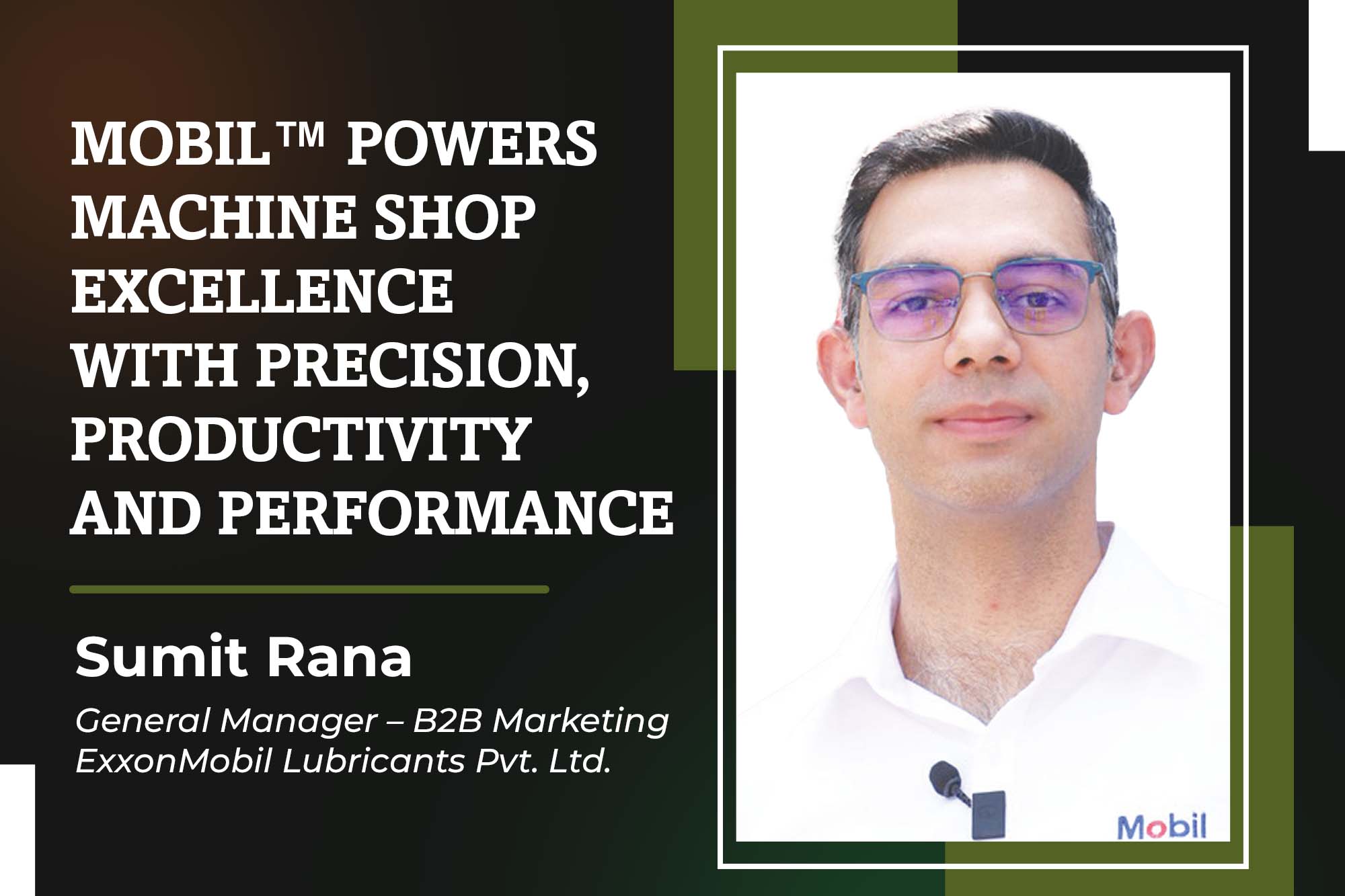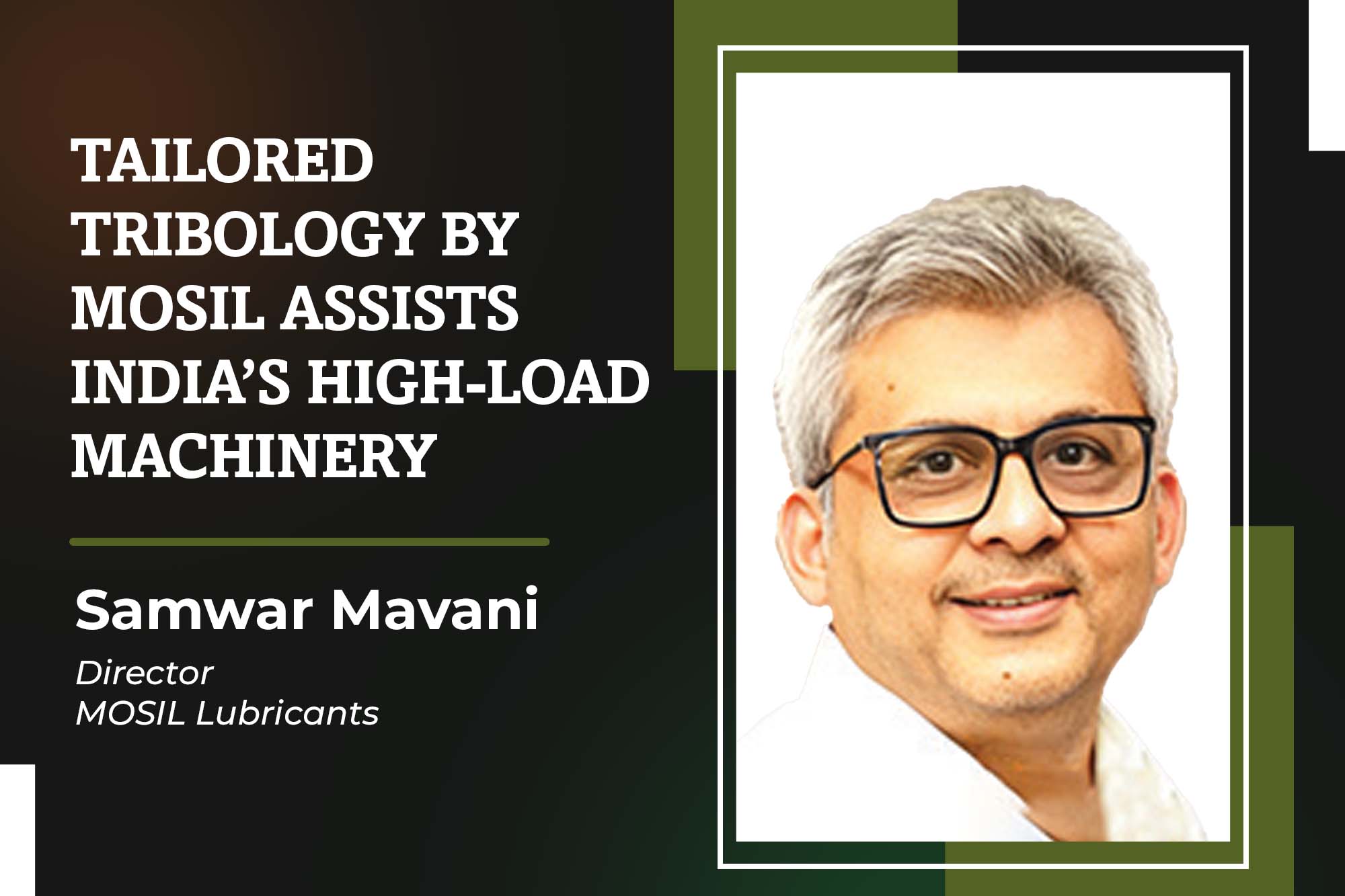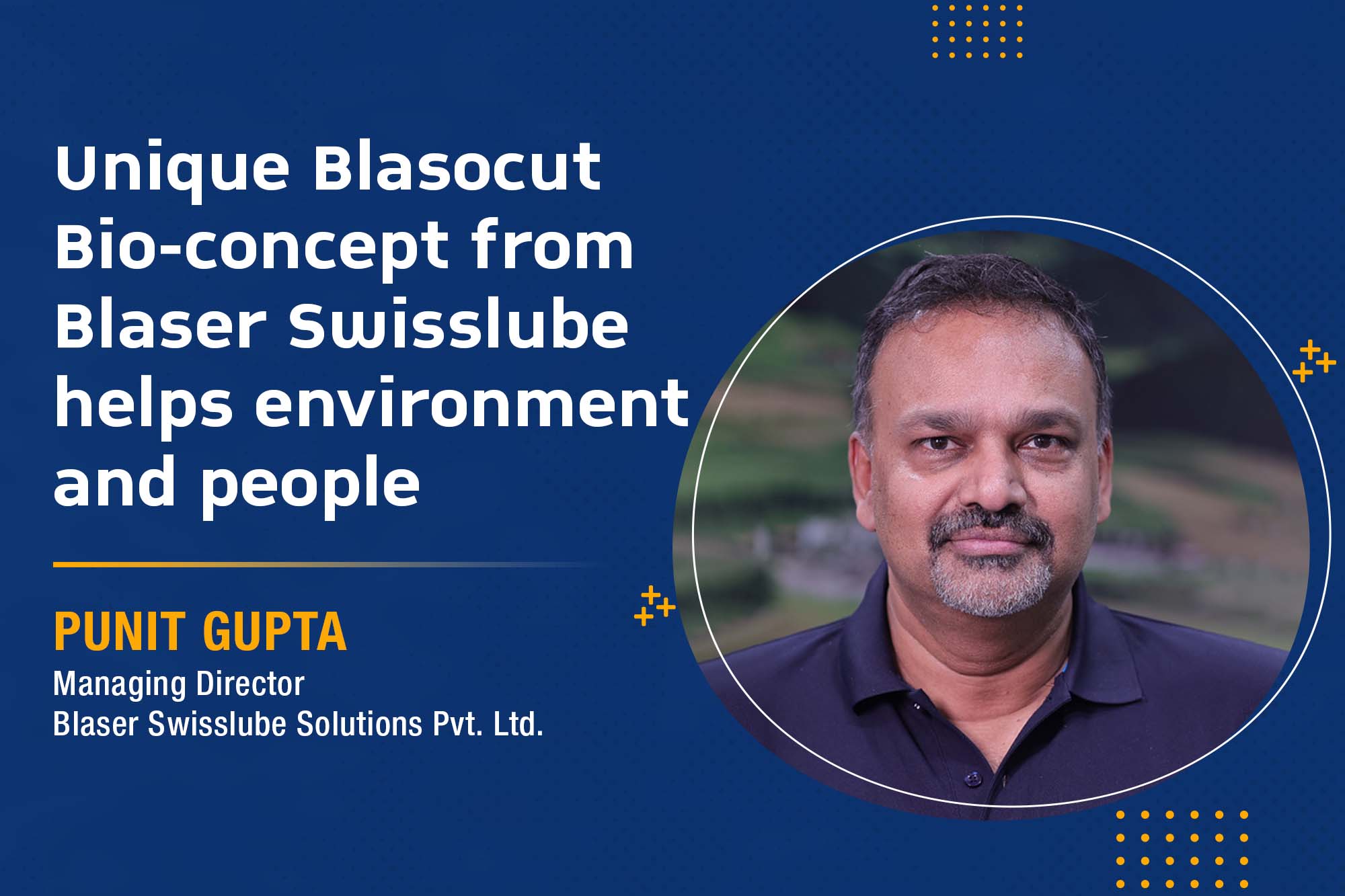Beyond base oil, speciality lubricants deliver sustainability and EV precision
By Staff Report October 1, 2025 7:39 pm IST
The lubricant industry is navigating extreme operational demands, sustainability mandates, and the EV revolution. Molygraph Director Samarth Shah discusses how high-performance speciality lubricants, ranging from calcium sulfonate greases to EV damping solutions, help their customers achieve equipment reliability and drive market differentiation.
What are the biggest operational challenges your customers/ industry face with lubricants today?
The biggest challenges stem from increasingly demanding operating environments. Industries such as steel, cement, paper, and automotive operate under extreme loads, high temperatures, contamination risks, and continuous duty cycles. Customers often struggle with frequent re-lubrication, premature equipment failures, and high maintenance costs because conventional lubricants fall short in such conditions. Another challenge is the lack of awareness about the right lubricant for specific applications, leading to overuse, misuse, or generic solutions that compromise reliability and efficiency.
What innovations or technologies are emerging to balance performance with sustainability? Do you see this as a constraint or an opportunity for growth?
Sustainability is a business imperative. At Molygraph, we see this as an opportunity rather than a constraint. Innovations such as calcium sulfonate and polyurea-based greases, high-performance synthetic oils, and damping greases for EVs are already helping customers reduce consumption, extend equipment life, and lower their carbon footprint. Energy-efficient lubricants, low-toxicity formulations, and products designed for longer re-lubrication intervals directly support performance and sustainability goals. Sustainability challenges are driving the industry to innovate more rapidly, which creates new opportunities for growth and differentiation.
How is Molygraph addressing these evolving lubrication challenges across industries?
Our approach has always been solution-driven. With over five decades of experience, we’ve developed a wide portfolio of speciality lubricants tailored to industry-specific challenges, ranging from crusher bearings in sugar mills to continuous casters in steel plants and advanced greases for automotive applications. Our in-house R&D team works closely with OEMs and end-users to design formulations that meet stringent technical, environmental, and sustainability benchmarks. This combination of deep domain knowledge, technical expertise, and customisation allows us to deliver results that generic lubricants cannot.
What makes Molygraph uniquely positioned in the lubricant industry?
We are one of the few Indian lubricant manufacturers who exceed global performance standards set by companies such as FAG, FZG, etc., and serve over 25 countries worldwide. Our ability to combine global standards with local support through distribution networks and just-in-time delivery ensures customers get both innovation and reliability. Additionally, recognitions like the Times Group’s ‘Sustainable Organisation 2024’ award reaffirm our commitment to balancing performance with responsibility. For us, it’s about creating measurable value for our customers while contributing to a greener and more sustainable future.
How has crude oil price volatility affected lubricant production and pricing in recent years?
Volatility in crude oil prices has had a direct impact on the cost of base oils and additives, creating pressure on lubricant manufacturers to maintain competitive pricing. However, what we’ve observed is that customers are increasingly shifting their focus from “price per kilogram” to “cost of ownership.” Even in a volatile pricing environment, customers who invest in high-performance speciality lubricants realise long-term savings through reduced downtime, lower replacement costs, and extended maintenance cycles. This mindset is helping cushion the impact of crude oil fluctuations on the market.
Are manufacturers looking at synthetic or bio-based alternatives as a hedge against this volatility?
Absolutely. Synthetic lubricants are gaining popularity due to their superior performance in extreme conditions, longer service intervals, and reduced environmental impact. We also see growing interest in bio-based lubricants, particularly in applications where biodegradability and low toxicity are critical. While adoption in heavy industries is still in its early stages, OEMs and end-users alike are exploring these alternatives as a hedge against volatility and as part of their sustainability roadmaps.
With the rise of EVs and advanced automation, how is the demand for traditional lubricants changing?
The shift toward electrification and automation has changed the role of lubricants. In EVs, the absence of engine noise amplifies the importance of speciality damping greases that control motion, eliminate squeaks and rattles, and enhance tactile feel. In automation and robotics, high-precision lubricants ensure smooth and reliable motion, while also extending service life. While demand for certain traditional lubricants may plateau, the rise of EVs and advanced automation has created an entirely new category of opportunities for speciality lubrication solutions.
In such a competitive market, where margins are tight, what differentiates one lubricant supplier from another?
The differentiator lies in value creation beyond just selling a product. At Molygraph, we work closely with OEMs and end-users to develop tailor-made solutions for their exact applications, backed by strong R&D and technical support. Our focus is on co-creating solutions, whether it’s extending bearing life in sugar mills, improving haptic feedback in automotive gear shifters, or reducing downtime in steel plants. Our local distribution support and strong sustainability focus give us a brand with a problem-solving approach, which sets us apart.
Cookie Consent
We use cookies to personalize your experience. By continuing to visit this website you agree to our Terms & Conditions, Privacy Policy and Cookie Policy.
















